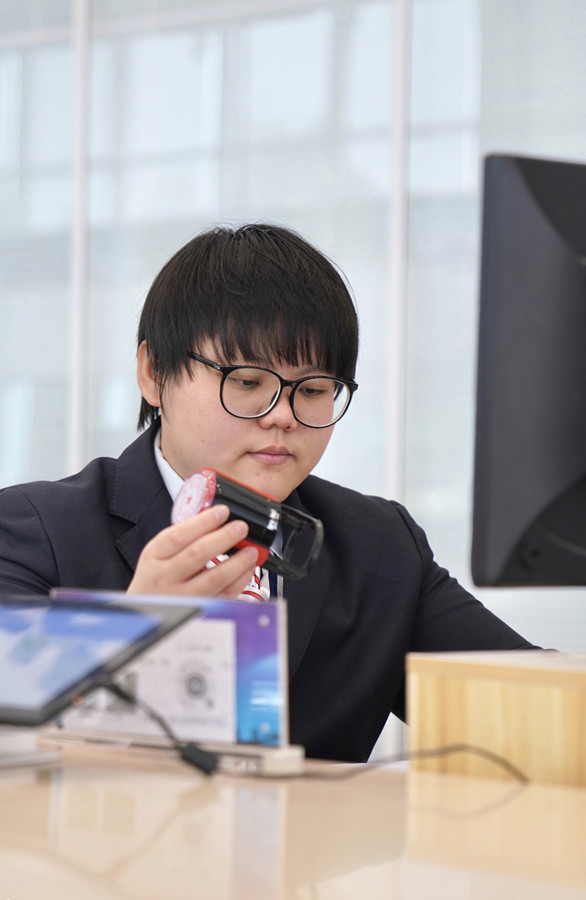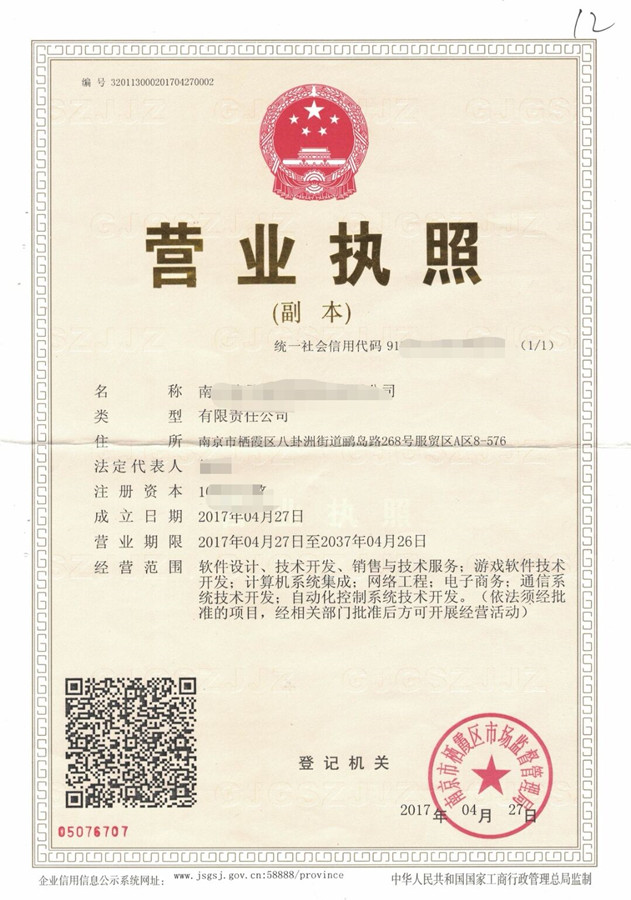
Yuan Fang, a specialist of the one-stop e-government service for the Yangtze River Delta, arrived at her office early in the Qixia District Government Service Center on October 27. Huang Yaping, a native of Nanjing, called the day before to visit the office at 9:00 am and apply for business license in Shanghai. This was the first such cross-provincial business license administration in the district since the e-government service was launched. Yuan and her colleagues completed the procedures step by step including information review, scanning, uploading, facial recognition, signing and etc.. The information was immediately shared with the Market Supervision Bureau in Minhang District, Shanghai. Meanwhile, the process to apply for company chops, bank account, and tax registration was also kicked off for Huang.

Yuan said Huang can obtain the business certificate without leaving her house. On April 27, 2017, Qixia District became the first in China to offer the administration review for business registration without in-person meetings. Company registration, chops , opening bank account and tax matters can all be processed on a digital device.
Business procedures in the same city have been simplified, but barriers have existed when involving different areas. Fortunately, amid the regional integration, the delta’s streamlined e-government services platform was launched in May 2019, on the basis of data sharing across provinces. The center can handle 30 business matters including establishment, change and cancelation for companies across the delta.

From the top-level design to unify standards, the delta, which consists of Shanghai and the provinces of Jiangsu, Zhejiang and Anhui, has made efforts to promote the free flow of land, technology, capital, labor and other market factors. Qingpu District in Shanghai, Wujiang District in Jiangsu and Jiashan County in Zhejiang form an ecologically friendly development demonstration area, and will pilot administrative reforms and innovative measures that can be rolled out in the whole delta. The demonstration area has worked out 32 measures to support collaborative integration on eight key aspects - planning and administration, ecological protection, land management, project management, flow of factors, sharing of financial and tax revenues, public services, and social credit management.
Liu Zhibiao, president of the Yangtze IDEI, said the delta is a key player in promoting the new economic development pattern of "dual circulation" and needs to shift from the export-driven growth to taking the domestic market as the mainstay. Efforts on transportation, trade, financial service, information and talent need to serve the “dual circulation” strategy. The delta should take advantage of the big domestic market, attract domestic and foreign resources to congregate for innovation, and build a foundation for transformation of China’s economic development strategy.
Contact us at english@jschina.com.cn








